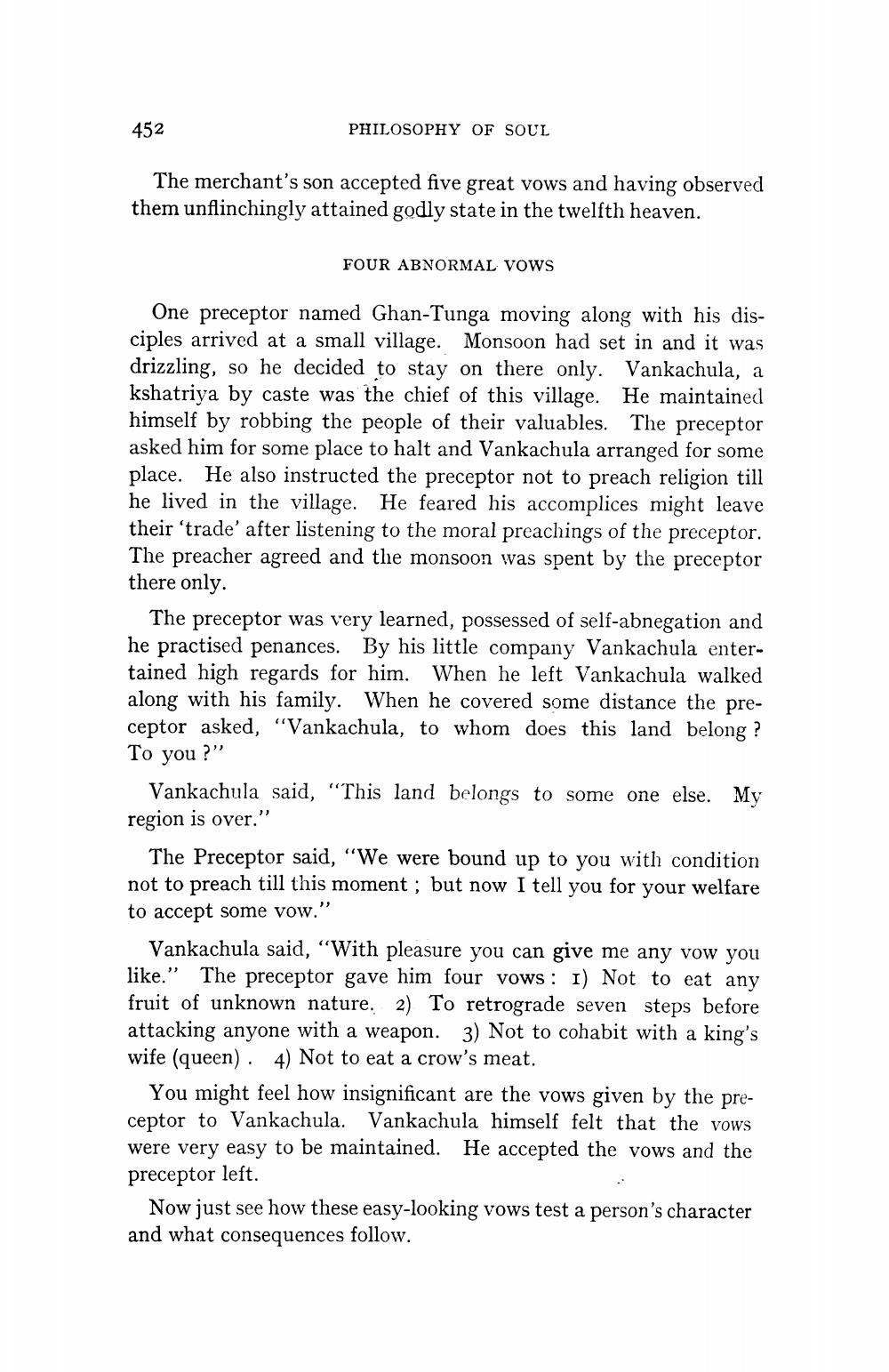________________
452
PHILOSOPHY OF SOUL
The merchant's son accepted five great vows and having observed them unflinchingly attained godly state in the twelfth heaven.
FOUR ABNORMAL VOws
One preceptor named Ghan-Tunga moving along with his disciples arrived at a small village. Monsoon had set in and it was drizzling, so he decided to stay on there only. Vankachula, a kshatriya by caste was the chief of this village. He maintained himself by robbing the people of their valuables. The preceptor asked him for some place to halt and Vankachula arranged for some place. He also instructed the preceptor not to preach religion till he lived in the village. He feared his accomplices might leave their 'trade' after listening to the moral preachings of the preceptor. The preacher agreed and the monsoon was spent by the preceptor there only.
The preceptor was very learned, possessed of self-abnegation and he practised penances. By his little company Vankachula entertained high regards for him. When he left Vankachula walked along with his family. When he covered some distance the preceptor asked, “Vankachula, to whom does this land belong ? To you?”
Vankachula said, “This land belongs to some one else. My region is over."
The Preceptor said, “We were bound up to you with condition not to preach till this moment; but now I tell you for your welfare to accept some vow."
Vankachula said, “With pleasure you can give me any vow you like.” The preceptor gave him four vows: I) Not to eat any fruit of unknown nature. 2) To retrograde seven steps before attacking anyone with a weapon. 3) Not to cohabit with a king's wife (queen). 4) Not to eat a crow's meat.
You might feel how insignificant are the vows given by the preceptor to Vankachula. Vankachula himself felt that the vows were very easy to be maintained. He accepted the vows and the preceptor left.
Now just see how these easy-looking vows test a person's character and what consequences follow.




